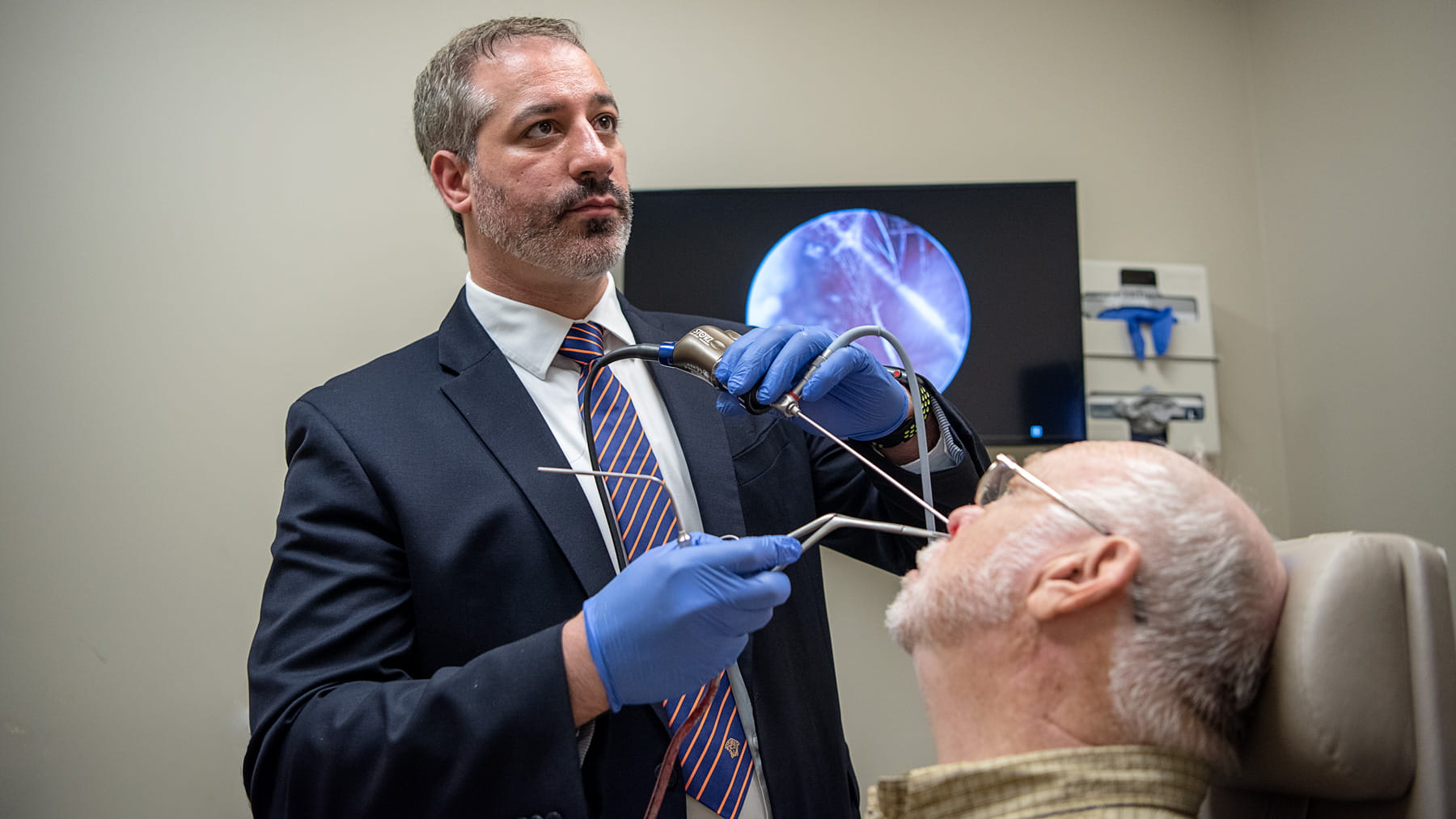Can nasal surgery help improve taste and smell?

If you’re suffering with sniffling, sneezing and congestion, it’s not unusual to temporarily lose your sense of taste and smell. And generally, once you’re feeling better, your ability to taste and smell returns to normal.
But for some people, the loss of taste and smell persists for weeks – sometimes longer – particularly if you’re prone to recurrent sinus or upper respiratory infections. At this point, you’ve likely seen your primary care or urgent care physician and tried nasal sprays along with multiple courses of antibiotics, to no avail.
Also known as sinusitis, rhinosinusitis occurs when the hollow air cavities in your cheekbones, around your eyes and behind your nose are inflamed. These air cavities, called sinuses, contain mucus that drains into the nose.
When something blocks the mucus from draining properly – like nasal inflammation – an infection can occur, leading to facial pain and discomfort.
Generally, the loss of taste and smell is insidious, happening gradually as a result of repeat sinus or upper respiratory infections that cause inflammation and irritation in the sinus cavity.
If you’ve had at least four sinus infections within a year, you should consider visiting an ear, nose and throat specialist to see if you’d benefit from sinus surgery.
How can sinus surgery help?
Each patient is different, and thus requires an accurate diagnosis with a well-developed and individualized treatment plan.
I often tell my patients that our minimally invasive sinus surgery allows us to fix the plumbing inside your nose so that it works better, and won’t be prone to as many infections. Most of these surgeries are done on an outpatient basis with minimal pain and recovery times.
What's the difference between a cold and sinusitis?
It can be very hard to distinguish a bad cold from sinusitis. Many symptoms are the same, including headache, runny nose, cough and nasal congestion. But unlike a cold, sinusitis symptoms include painful pressure, swelling or tenderness in the cheeks and forehead. Other symptoms include:
- Nasal obstruction or blockage
- Thick yellow-green nasal discharge
- Decreased sense of smell or taste
- Pain in your upper teeth and jaw
- Bad breath
- Ear pain
- Fever
What causes sinusitis?
There are multiple factors that may lead to rhinosinusitis, although in many cases the underlying cause may not be known. Some of the potential underlying causes or contributing factors include:
- Allergies
- Asthma
- Deviated nasal septum
- Fungus
- Infection (usually viral or bacterial)
- Nasal polyps
- Poor function of the sinus immune system due to:
- Medications (such as chemotherapy)
- Primary immunodeficiency disorders
Does our sense of taste and smell change as we age?
Yes, but we don’t completely know why this happens. For some people, changes in their taste and smell can be early marker for neurodegenerative diseases such as Alzheimer’s or Parkinson’s.
In some cases, it’s simply age-related, and as we age, certain body parts stop functioning properly. It’s not uncommon for me to see people in their 40s, 50s and 60s complaining of decreased taste and smell. Unfortunately for most of these patients, there’s not much medically that we can do to help as they gradually lose their ability to taste and smell.
Alexander Farag is a head and neck surgeon in the Department of Otolaryngology at The Ohio State University Wexner Medical Center.




